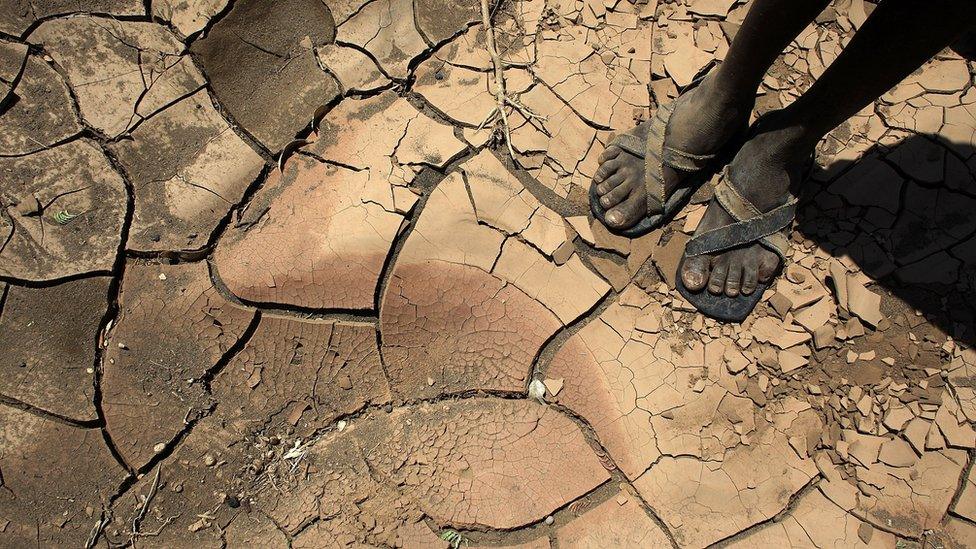DR Congo floods: Digging through mud to find relatives
- Published
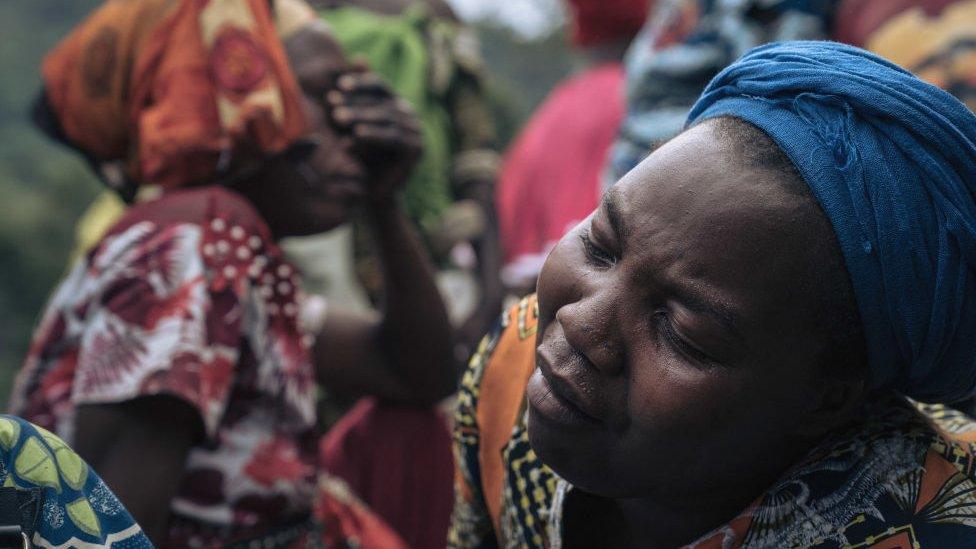
The villages of Bushushu and Nyamukubi were engulfed by flood water
More than 400 people have died following floods and landslides that hit two villages in eastern Democratic Republic of Congo last week.
The authorities had previously said 200 people had died following torrential rainfall on Thursday.
In several villages close to the shore of Lake Kivu, people have been digging through the mud with their hands in a desperate search for missing relatives.
The Congolese Red Cross volunteers do not have body bags.
They are having to pile up the bodies wrapped up in blankets in the villages of Bushushu and Nyamukubi in South Kivu province.
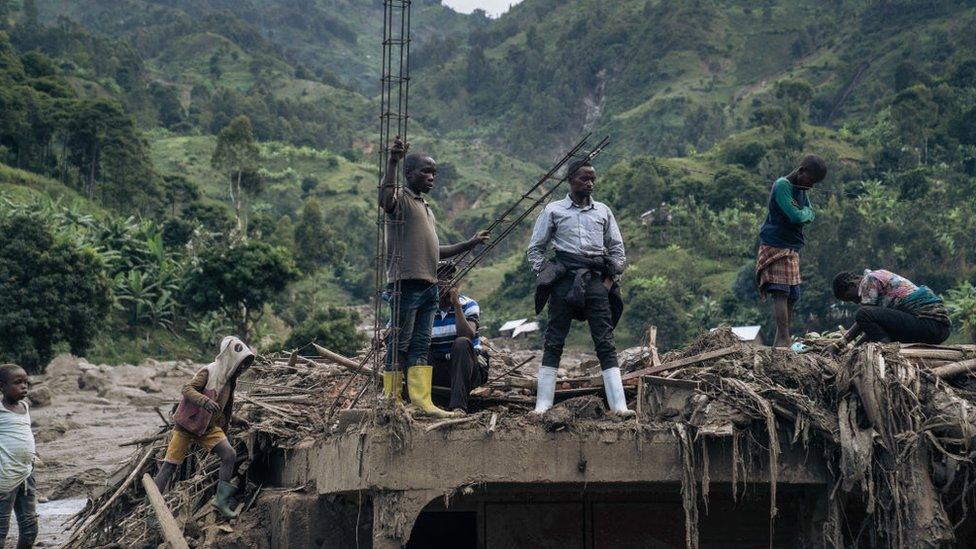
Communities have been trying to find bodies among the mud and debris
It is now four days since the floods hit and the number of dead keeps rising, now standing at at least 394. On Monday a national day of mourning is being held and flags are flying at half-mast. President Félix Tshisekedi is also due to visit the affected areas.
One distraught mother in Nyamukubi said her husband had survived and was in hospital but all her children were gone.
"It's like the end of the world," 27-year-old Gentille Ndagijimana, who also lost her parents and two sisters, told the AFP news agency.
Homes made of wooden planks with corrugated iron roofs were swept away.
Some areas have been almost entirely wiped out, according to a spokesperson for the medical charity Médecins Sans Frontières (MSF).
"In two of the most affected areas where MSF is staying now, between half and three-quarters of the towns have been completely washed away," Igor Garcia Barbero told the BBC's Newsday programme.
The villages were "facing a humanitarian crisis", he said.
"The eastern part of Congo is already an area that is facing multiple crises," Mr Barbero added, because of thousands of people who have fled conflict in North Kivu, which means aid is already limited.
A civil society representative concurred with Mr Barbero's bleak assessment: "It is the worst flood we have ever had," Christian Zihindula Bazibuhe told the Reuters news agency.
The UN has warned that 3,000 families are now homeless because of the tragedy, Reuters reports.
The Red Cross in South Kivu has identified safety concerns for those who have survived the floods and are without homes, including the potential dangers of assault and rape for those living with host families and at accommodation sites.
Last week also saw floods across the other side of Lake Kivu in neighbouring Rwanda where more than 130 people were killed.
UN chief António Guterres said the floods were another illustration of accelerating climate change.
Related topics
- Published3 May 2023
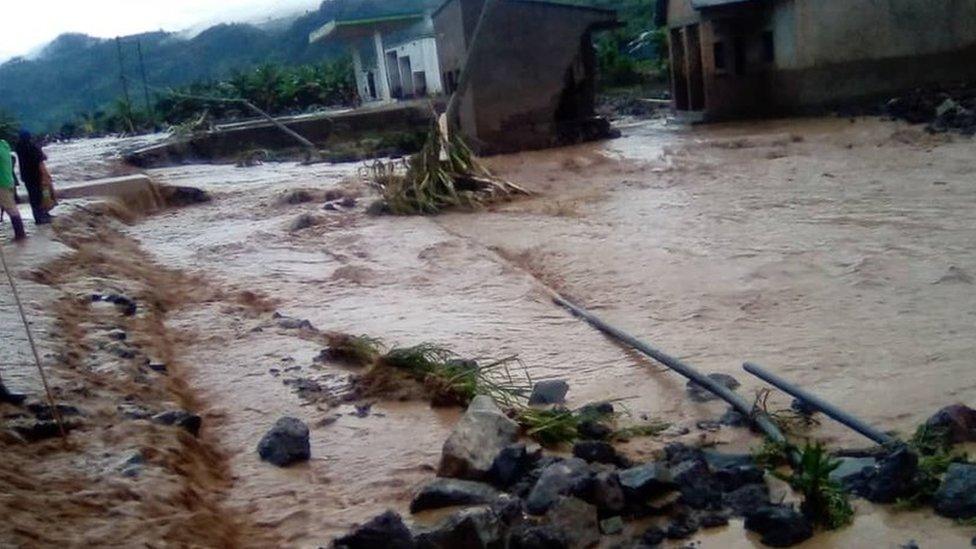
- Published31 January
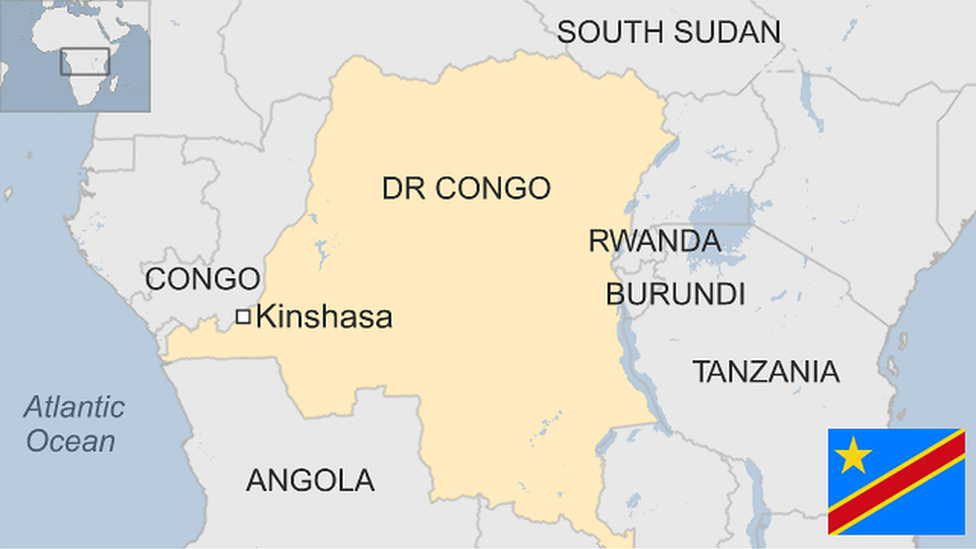
- Published15 December 2019
